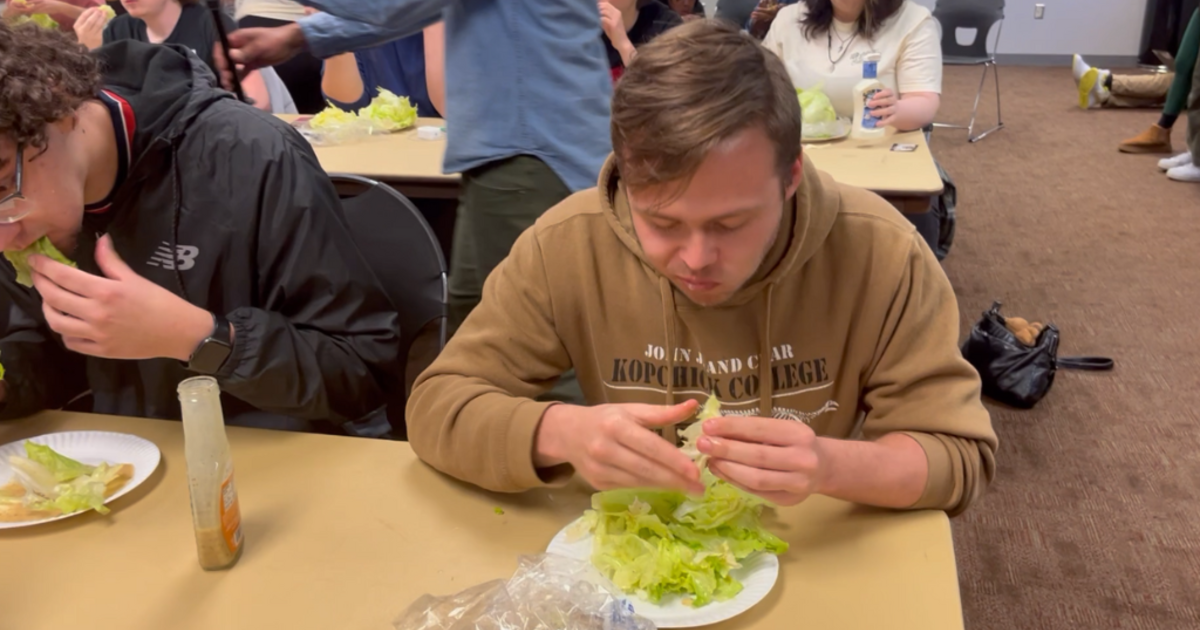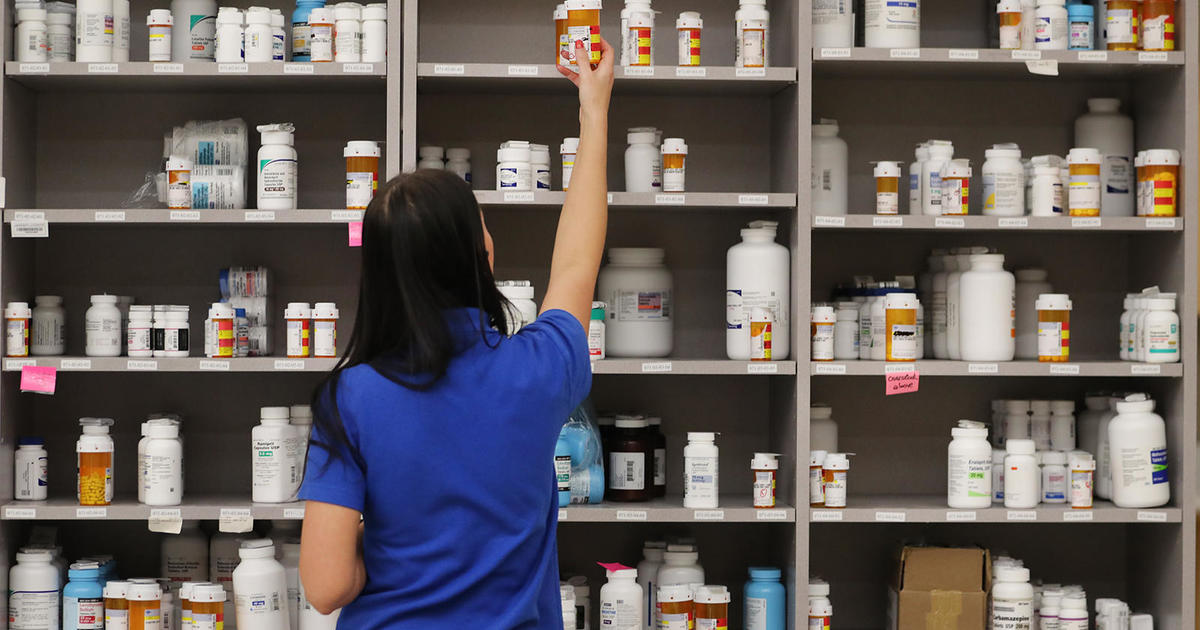Independent Pittsburgh-area pharmacists blame closures on middlemen
PITTSBURGH (KDKA) -- We've all noticed the closures in our communities or read the headlines. More than 307 independent pharmacies have closed nationwide in the past three months.
But the reasons behind the closures aren't as simple as "they ran out of money."
KDKA-TV investigator Meghan Schiller learned independent pharmacists in the Pittsburgh area blame middlemen who they say are sucking the life out of your community pharmacy.
It's a crisis hitting our area hard. About 30 independent pharmacies shut down in Pennsylvania so far this year, and 19 are right in western Pennsylvania. But it's the consumer who will pay the ultimate price, whether that's with your cold hard cash, your time or your safety.
Inside Hilltop Pharmacy in Pittsburgh's Allentown neighborhood, they're bleeding money.
"It's hard to explain it to the average person. All they know is if they come in and pay a co-pay if they have one. They know nothing that happens on the back end of that transaction," said Hilltop Pharmacy pharmacist and owner Patrick Lavella.
Lavella showed KDKA-TV his receipts. He says he's losing money because of what's called a PBM, a pharmacy benefit manager.
Independent pharmacies sign contracts with these PBMs in our area like Express Scripts or CVS Caremark. Those PBMs work as middlemen between health plans and drug manufacturers, negotiating prices with drug companies and setting the reimbursement rates for pharmacies.
"Our reimbursements, it's a percentage that we're getting paid so as those prices go up, the percentage we're getting reimbursed is decreasing, so what we're buying it for is not being covered," Lavella said.
A sample three-year contract from the PBM Express Scripts will reimburse the pharmacy for brand name drugs the average wholesale price minus 25%. For 90-day prescriptions, it's worse, at the average wholesale price minus 30.5%. That means they're losing money on almost every brand name prescription they fill, and pharmacists tell KDKA-TV when they refuse to sign the new contracts, they later receive letters saying they'll be enrolled again, unless they opt out.
"That's all we're asking for is fair reimbursement, that's all we want," said Jamie Wyels, who owns a Medicine Shoppe on Mt. Washington.
He says no one would sign up for a business with margins like this.
"Between Jan. 1 and now, on brand name medications that we dispense, we spent $260,000 to get those medicines for our patients and we grossed $1,100 on that spent which is -- you can't make it," Wyels said.
And unlike pharmacies like CVS, Rite Aid, Walgreens and Giant Eagles with thousands of square feet of retail space out front, they can't absorb the losses behind the pharmacy counters like the big guys.
"We're all in the same boat and we're all praying month to month," Wyels said.
Take one drug for example: Synthroid. A lot of people take this for thyroid issues. It costs the pharmacy $134 to get a bottle, but if you put it in the system, they're reimbursed $71, which for every bottle leaves them in the red $63.47.
And it's hit after hit for pharmacist Adam Rice, the owner of Spartan Pharmacy.
"I filled a 90-day prescription for a very low-cost blood pressure medicine, 90 tablets I got paid 86 cents. That 86 cents is supposed to cover the 90 tablets, the bottle, the label, the cap, the labor, the bag, the paper insert, the receipt and my time to counsel them, for 86 cents," Rice said.
Rice got the ear of his state Rep. Jessica Benham when she came in to grab her prescriptions, and now she's pushing legislation.
"It gives our insurance department more oversight over these PBMs and it also is going to limit or ban certain practices by PBMs," Benham said."Things like patient steering where they encourage patients to go to a pharmacy that is vertically integrated with the PBM or the insurance company, or spread pricing where the PBM takes a lot of money from the insurance company for a prescription and then doesn't pass enough of it on to the pharmacy for the pharmacy to make money or even break even."'
Schiller: "Would you call what's happening predatory?"
Benham: "I would call what is happening the result of a predatory system, yes"
KDKA Investigates reached out to the two big PBMs in our area, Express Scripts and CVS Caremark.
In a statement, Express Scripts said in part:
"Express Scripts relentlessly advocates on behalf of the people we serve to make lifesaving therapies and medications more accessible and affordable. We are committed to reimbursing pharmacies fairly while ensuring our customers have safe, quality pharmacies in their network."
CVS Caremark says it recently introduced true cost and plans to launch CVS CostVantage saying, in part:
"And TrueCost will enable a pharmacy reimbursement structure in which CVS Caremark will be better positioned to reimburse pharmacies for drugs based on their acquisition costs, with dispensing fees that reflect the services they provide to their patients."
Wyels said, "We sponsor baseball teams, Little League, we donate to organizations, we go to different events, we do things in the community to help whether they're our patients or not our patients. I know Rite Aid down the street won't even let you hang a flier in the window."
Rite Aid and Giant Eagle did not respond to KDKA-TV's requests for comment.




